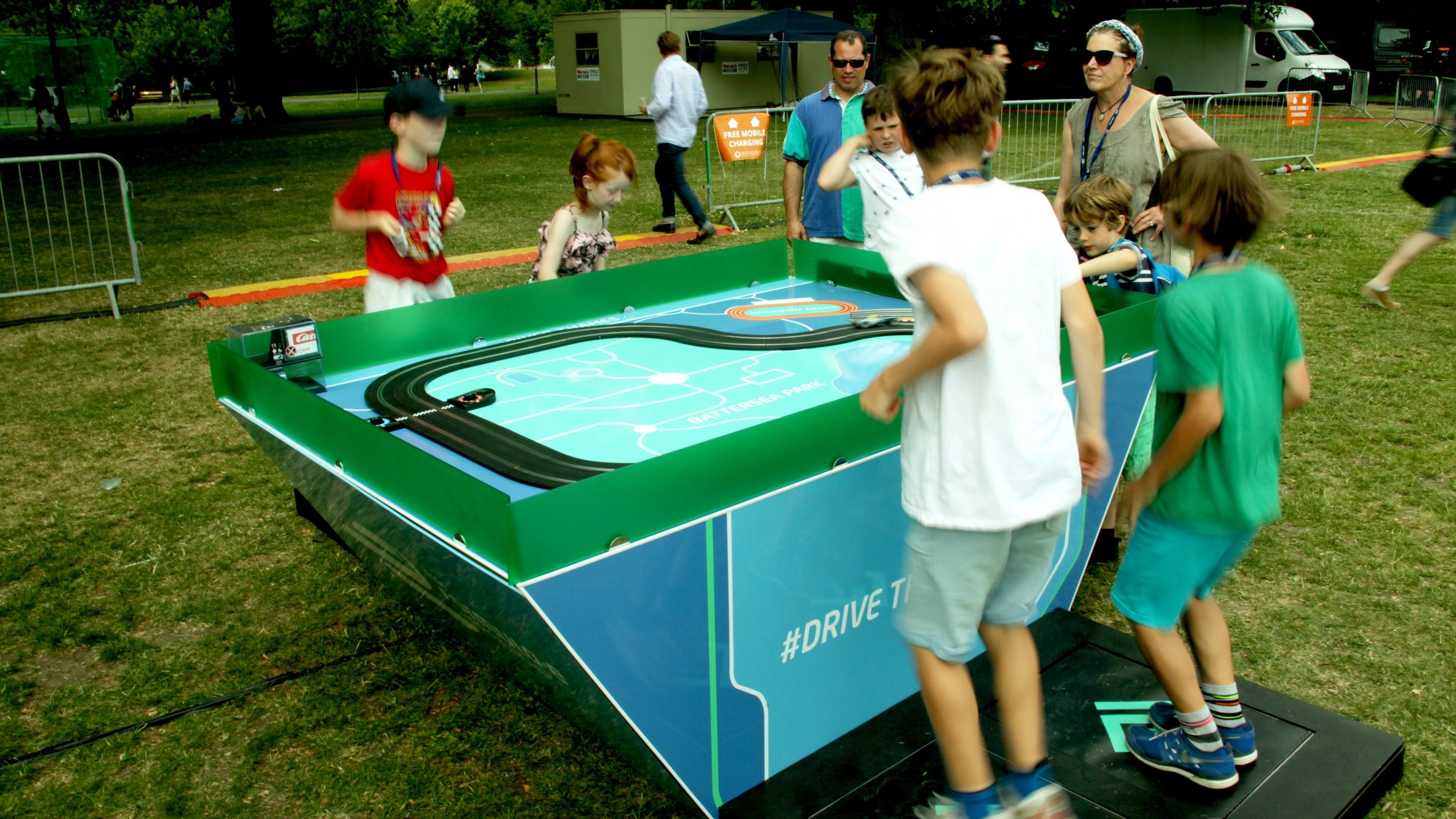Not too long ago, we featured the U.K. technology startup Pavegen, which produces tiles designed to generate seven watts of electricity every time someone steps on them. The company makes some pretty big claims, offering up easy solutions to humanity’s power needs with nothing more than the installation of its product in strategic, high-traffic locations. Pavegen is making the right moves to gain visibility, with the latest being a partnership with Formula E.->ke4660
Rounds 10 and 11 of the Formula E championship brought the EV->ke1030 circus to London for a British double header at Battersea Park, where Pavegen had a presence alongside the booths of racing->ke447 staples like BMW->ke178 and Michelin. Some 60,000 attendees were on hand for the event, and many took the opportunity to try out Pavegen’s product.
The power-generating tiles were hooked up to a slot-car recreation of the track, with spectators propelling the miniature open-wheelers through every step, no doubt fostering a good deal of sustainable-style, running-in-place dance-off competition in the process. Fun!
So what’s the endgame? Will we eventually replace sidewalk concrete with Pavegen tiles to help power all those EVs in the street? Will the arrival of a crowd be all that’s needed to keep the lights on for major sporting events? Will the next Prius come with a human-sized hamster wheel to make it go? Will Tesla buyout Pavegen as soon as Elon Musk is finished flying his personal spaceship around the moon?
Maybe.
Continue reading for the full story.
Why it matters
It’s not easy making electric power sexy and cool, but associating with high-performance open-wheel race cars->ke148 in close competition is one good way of going about it. Furthermore, the slot car track that Pavegen offered onsite is a simple, clever, easy-to-follow demonstration of the company’s grand ambitions when it comes to large-scale applications.
In many ways, this tech is right in line with other energy-saving practices. It’s about little gains accumulated over a long period of time, like hypermiling a diesel by drafting behind trucks->ke1311 and popping the transmission into neutral down inclines. Every watt gained is an asset.
I’m imagining a few pre-race crowd warm-up laps around a Pavegen-equipped loop to top off the competitors' battery packs, which would most definitely not fly outside the more health-conscious European countries.
Either way, regardless of the feasibility of crowd-sourced power generation, Pavegen seems to be doing quite well in terms of crowd-sourced funding. The company launched an investment round on May 26th and reached its target of £750,000 ($1.172 million at current exchange rates, 7/15) in just 59 hours, hitting £1 million in less than a week. The campaign then managed to snag 1,000 investors in under two weeks, finally closing its coffers with £2 million, 275 percent over its initial target, and 1,555 investors total on board. Names attached to the project now include a former Apple executive and the former President of Interface Flooring. This bodes well for Pavegen.
As companies like Tesla, BMW and Toyota->ke88 branch out into providing wide-ranging energy solutions to complement their cars, this latest innovation is hard to ignore.
Look for it soon under a shoe near you.

